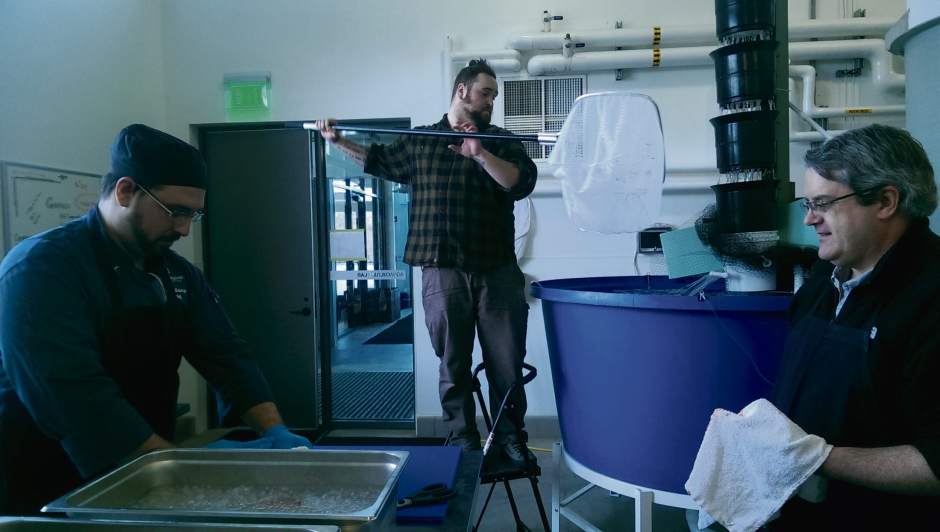Chatham's Eden Hall campus offers a 'taste' of sustainability
Chatham University's Eden Hall stands as an example of a sustainable campus, and you don't have to be a student to take advantage of what it has to offer.
That includes the dining hall, where members of the public are invited to come and eat and taste what very locally grown food tastes like at the hands of a seasoned chef and his staff. Head chef Christopher Galarza, of Parkhurst Dining, recently gave a presentation at Northern Tier Regional Library highlighting what it means to be sustainable, how they go about it at Eden Hall and how that translates into feeding students at the dining hall from vegetables, herbs, honey and even trout raised just hundreds of feet away from where the food is prepared.
Anyone is welcome to come eat at the dining hall, Galarza said. They only ask that anyone planning to come with more than a couple of people call ahead. The only other thing to note is that the menu is based on whatever's in season and changes frequently.
“Because of the nature of the farm, our menus aren't quite set so I won't know three weeks out what we're having,” Galarza said at the presentation.
The farm is 100 percent organic, and the list of what they grow is extensive. It includes, at different times of year, apples, asparagus, beans, beets, carrots, corn, a number of varieties of peppers, tomatoes, cucumbers, squash and different lettuces and greens, mushrooms, watermelon, berries, zucchini and an array of herbs.
A number of other examples of how the campus is sustainable are also on display at the dining hall. Solar panels generate the campus' electricity, including the dining hall, and the kitchen itself is non-combustion, meaning there's no gas, Galarza said. Everything runs off the electricity generated right there on campus. They use induction cooktops as well as an energy-efficient hood and other appliances.
The dining hall doesn't use trays, because when you can only take what you can carry it often leads to less food being wasted, Galarza said. Plus, each tray uses about 1⁄3 of a gallon of water to clean, which adds up over time. They also compost and recycle most of their waste, and find creative ways to use food that might otherwise be thrown away, such as saving vegetable scraps to make stock or using pineapple cores to infuse water.
“Things that would normally be tossed out, we give a second life,” he said.
They also have a ban on water bottles, and ask that anyone coming from home to eat there bring their own bottle which can then be filled at a filling station.
They also offer a number of cooking classes to the public.
Karen Price is a Tribune-Review contributor.

